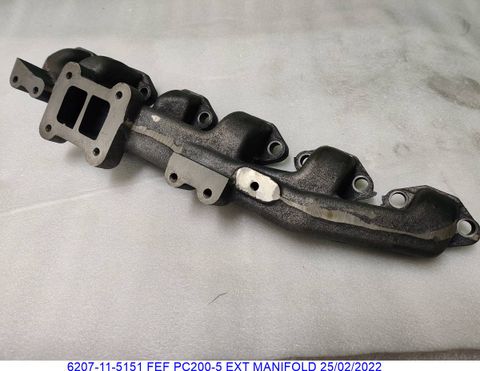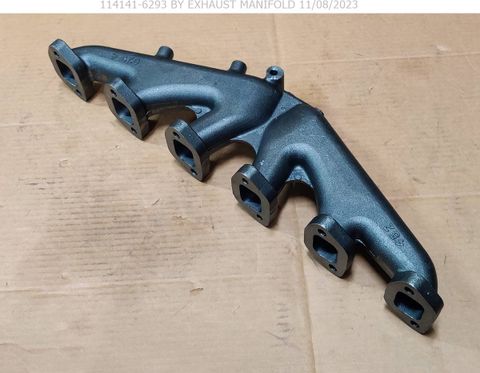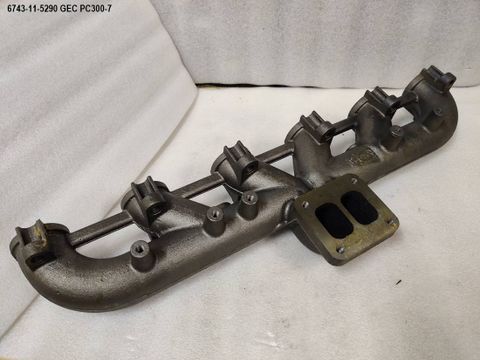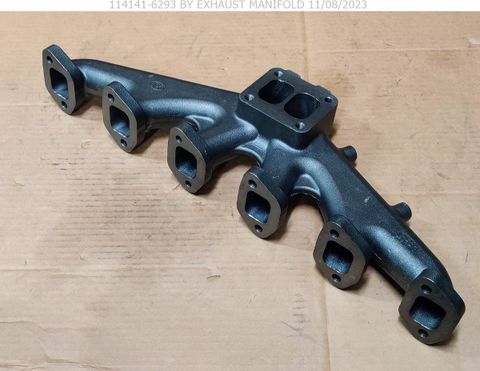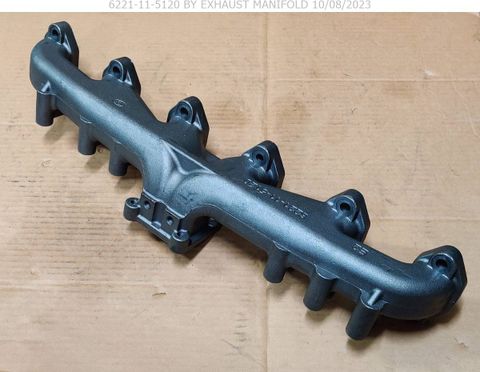Exhaust Manifold
Kali terakhir kemas kini
Harga:
R.F.Q
Share Product:
Butiran
The exhaust manifold is a critical component of a vehicle's exhaust system, responsible for collecting exhaust gases from the engine's cylinders and channeling them into the exhaust pipe. Problems with the exhaust manifold can lead to several issues, affecting engine performance, emissions, and overall vehicle operation. Here are some common problems associated with exhaust manifolds:
Exhaust Leaks: Exhaust manifold gaskets can degrade over time or become damaged, leading to exhaust leaks. Leaks can occur at the mating surfaces between the exhaust manifold and the cylinder head or at the connections between the manifold and the exhaust pipe. Exhaust leaks can result in several issues:
- Increased Engine Noise: Exhaust leaks can produce loud hissing or ticking noises, especially during acceleration or when the engine is under load. The noise may be most noticeable from underneath the vehicle or near the engine bay.
- Poor Engine Performance: Exhaust leaks can disrupt the engine's exhaust flow, affecting engine performance and efficiency. Leaks can cause a decrease in engine power, reduced fuel economy, and hesitation during acceleration.
- Increased Emissions: Exhaust leaks can allow unburned fuel and harmful gases to escape from the exhaust system before being properly treated by the catalytic converter. This can lead to increased emissions of pollutants such as hydrocarbons (HC), carbon monoxide (CO), and nitrogen oxides (NOx), potentially causing the vehicle to fail emissions tests.
Cracks or Damage: The exhaust manifold can develop cracks or other forms of damage due to thermal expansion and contraction, corrosion, or physical impacts. Cracks can occur in the manifold itself or in the mounting flanges. Cracked or damaged exhaust manifolds can lead to several problems:
- Exhaust Leaks: Cracks in the exhaust manifold can allow exhaust gases to escape, leading to the same issues described above, including increased engine noise, poor performance, and increased emissions.
- Exhaust Smells Inside the Vehicle: Cracked exhaust manifolds can allow exhaust gases to enter the engine bay or cabin of the vehicle. This can result in unpleasant exhaust smells inside the vehicle, especially when idling or under load.
- Potential Fire Hazard: In extreme cases, exhaust leaks from cracked exhaust manifolds can lead to hot exhaust gases coming into contact with flammable materials under the hood, increasing the risk of a fire.
Exhaust Manifold Warping: Over time, the extreme heat generated by the engine can cause the exhaust manifold to warp or distort. Warping can result in uneven sealing between the manifold and the cylinder head, leading to exhaust leaks and the associated problems described above. Additionally, manifold warping can cause mounting bolts to loosen or break, further exacerbating the issue.
In summary, problems with the exhaust manifold, including exhaust leaks, cracks or damage, and warping, can lead to increased engine noise, poor performance, increased emissions, exhaust smells inside the vehicle, and potential fire hazards. Regular inspection and maintenance of the exhaust system, including the exhaust manifold, are essential to ensure proper vehicle operation, emissions compliance, and safety.
Spesifikasi
| Kata kunci | |
| Jenama | |
| Asal | MY |
Katalog Download
